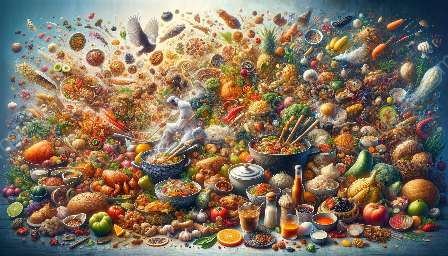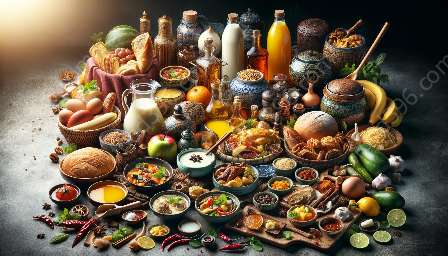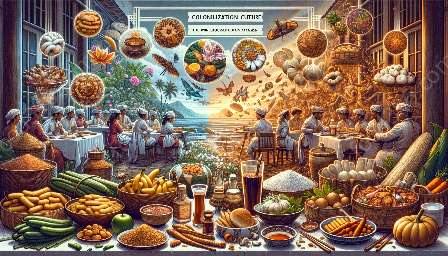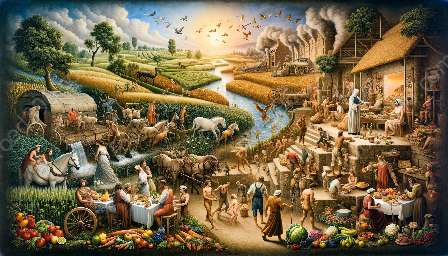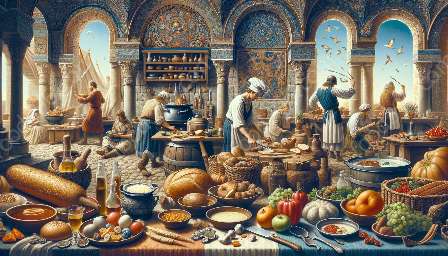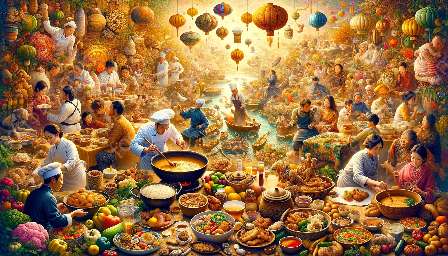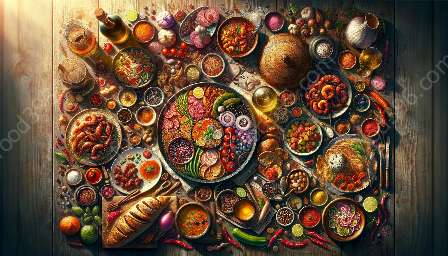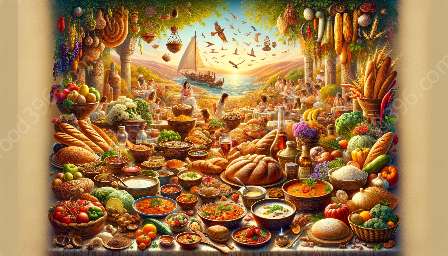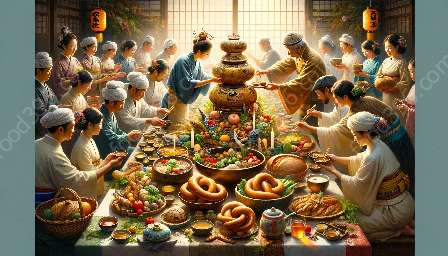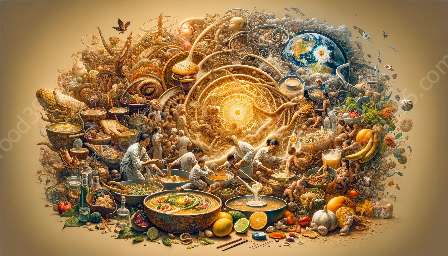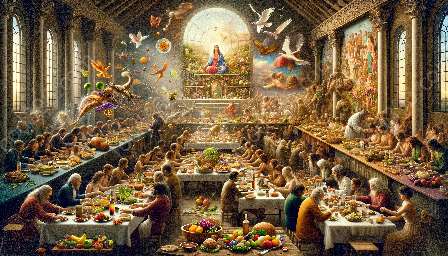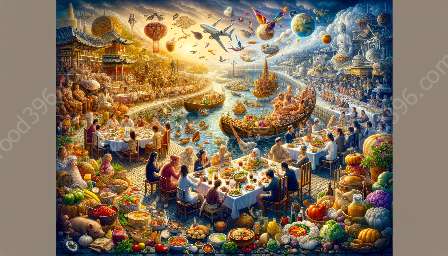Food holds a deep significance in religious practices around the world, often playing a central role in rituals, customs, and beliefs. This topic explores the various ways in which food intersects with religious traditions, shedding light on the impact of food on culture, history, and spirituality.
Food and Religious Practices
For many religious traditions, the act of sharing a meal holds profound spiritual meaning. In Christianity, the Eucharist involves consuming bread and wine as symbols of the body and blood of Christ, while during Jewish Passover, families gather to share a Seder meal, which symbolizes the Israelites' liberation from slavery in Egypt. Sharing meals is also a common practice in Hinduism and Islam, where food is seen as a means of fostering community and unity among believers.
Sacred Foods and Dietary Restrictions
Many religions have specific dietary laws and restrictions that govern what adherents can and cannot eat. For example, in Judaism, the laws of kashrut dictate which foods are considered kosher, while in Islam, adherents follow halal dietary guidelines. These dietary restrictions are not only a reflection of religious beliefs but also serve to reinforce spiritual discipline and identity.
Rituals and Ceremonies
Food often plays a pivotal role in religious rituals and ceremonies. In Hinduism, offerings of food and drink are made to deities during worship, while in Buddhism, followers offer food to monks as a form of spiritual merit-making. Similarly, feasting and fasting are prevalent in various religious observances, such as Lent in Christianity and Ramadan in Islam, both of which involve periods of abstaining from certain foods as acts of devotion and self-discipline.
Spiritual Symbolism in Food
Many religious traditions imbue certain foods with spiritual symbolism and meaning. For example, in Sikhism, the sharing of karah prasad, a sacred sweet pudding, represents the blessings of the Guru and is distributed to all worshippers. Similarly, in Chinese culture, certain foods are consumed during festivals and ceremonies to symbolize luck, prosperity, and familial harmony, reflecting the influence of religious beliefs on culinary practices.
Impact on Food Culture and History
The intertwining of food and religious practices has had a profound impact on food culture and history. Throughout the centuries, religious dietary laws and rituals have influenced agricultural practices, culinary traditions, and the evolution of cuisines around the world. The preservation of certain food customs and the development of specific dishes can be traced back to their religious significance, highlighting the enduring influence of spirituality on culinary heritage.
Food as a Unifying Force
While religious practices may vary widely, the role of food as a unifying force is a common thread that transcends different faith traditions. The act of sharing meals, observing fasts, and partaking in communal feasts serves to foster a sense of belonging and spiritual connection among believers. Moreover, the culinary heritage shaped by religious practices often becomes a point of pride and identity for communities, further emphasizing the profound impact of food in religious contexts.




